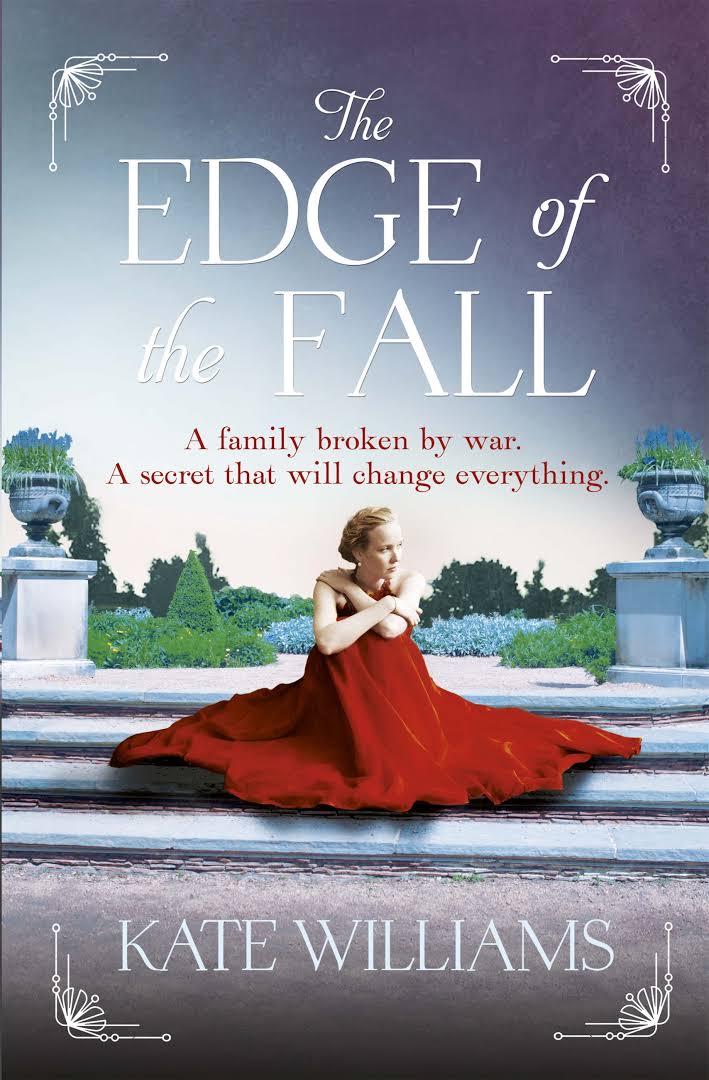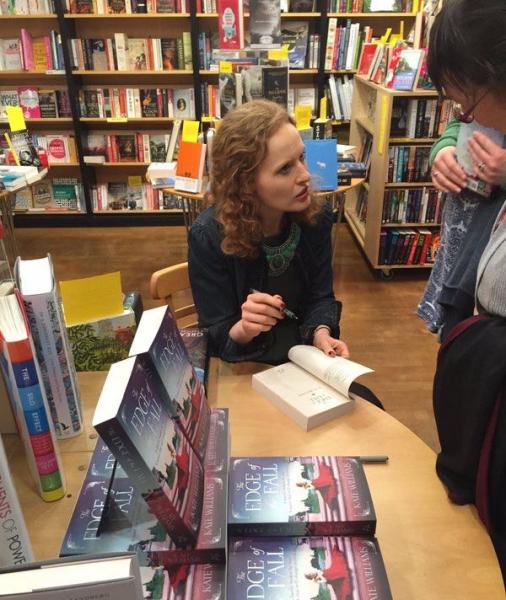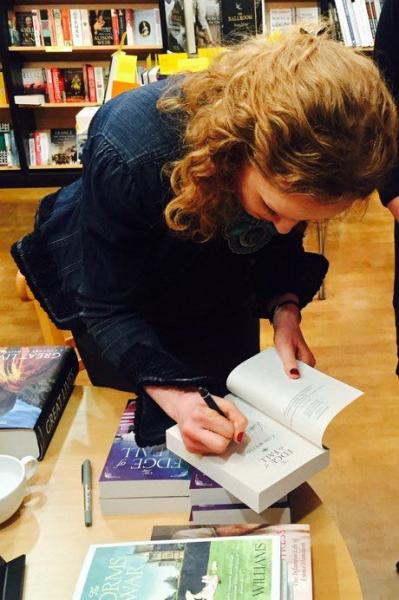Kate Williams
I suppose it's fair to say that everyone had high expectations for this evening's event with Kate Williams, having seen her on our tv screens and heard her on the radio, and she didn't disappoint.
Speaking without notes and almost without pausing for breath, she held us spellbound for 50 minutes and then answered questions fully. She could have kept us in wrapt attention for hours longer.
Kate took us back to her childhood when she can remember sharing her love of history with her younger brother whom she imprisoned in a cardboard box at the top of the stairs. With each precarious wiggle of the box, she told him he was travelling back in time and went on to describe the period in detail to her captive audience. (Her brother has since grown to dwarf her in height and works in IT.)
Kate moved on to study history, of course, and teaches as a professor at Reading University in addition to her tv and radio appearances, and writing biographies and novels. She is married with a four-year-old daughter, famously called Persephone (she was ribbed about the name when she appeared on a tv panel game recently), and lives in London. How does she find the time to do it all, was the first question she received from the audience this evening. "I don't do much housework," was her reply!
She talked to us about the Victorians - they're responsible for causing the most stress for modern women by inventing white weddings and Christmas! And the changing perceptions of the Germans with the outbreak of the war - they had previously been seen as the most desirable employees, with every hotel wanting German waiters for their precision, but quickly became unemployable and in the terrible position of not being able to leave the country and not being able to stay.
There were various ridiculous laws passed at the time, Kate explained. Lloyd George introduced a law against buying rounds in the pub, and you couldn't have a pigeon in 1914 for fear you were sending messages to the Germans.
She told us how fashion responded to the changing times. Obviously we heard about the flappers and the seduction of flashing ankles, but she also told us how the length of women's skirts can track the economic situation of society - the longer the skirt the deeper the depression, short skirts indicated boom times. And in recession people were more likely to want to marry and have children. Yet both characteristics seem counterintuitive in response to hard times.
Kate told us that despite writing a number of history books, she had always wanted to write a novel. And she finds the characters in her books become more real to her than her family members. She can be talking to herself, imagining a dialogue, while sitting on the tube. And she finds it hard to move on when a book is finished.
'The Edge of the Fall' is the second in her trilogy about the de Witt family and she said she is learning as she goes long - how to make sure her characters are the right age to experience the periods of history in which she wants to place them. She also wants to continue the series, beyond these three books moving the family further along and nearer to the present day.
Kate said that writing history books is like swimming lengths, whereas with writing fiction you can jump into the middle of the pool and swim in any direction!
Every member of the audience received 'The Edge of the Fall' with their ticket to the event, and there was a long queue as they each waited for Kate to sign their copy. Everyone left buzzing with enthusiasm for all that Kate had shared. She was truly inspiring and energising and a huge thrill to meet her.
Kate had a train to catch back to London, but was in no hurry to leave and browsed the shelves of the bookshop before we took her to the station.



